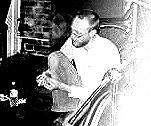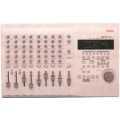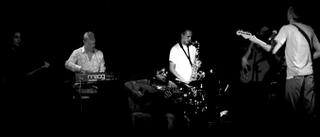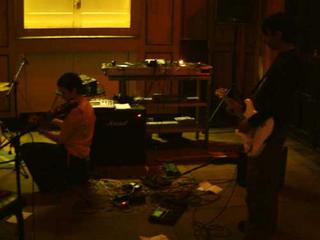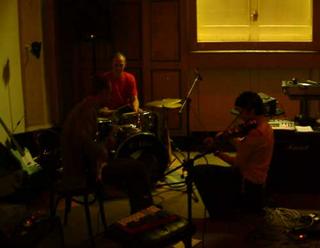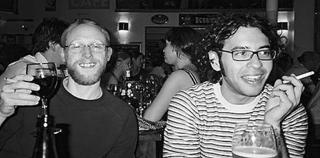While still performing with vocal-orientated groups between 1994 and 1997 i spent much of my spare time tinkering with sounds and instruments and recording to a series of borrowed cassette four-tracks. This lead me back to an interest in sound for sound's sake rather than what i'd recently considered to be music: things formed of notes, rhythms and harmonies. It was an interesting time, and due to my main pre-occupation still being vocal music and this being merely a sideline at the time, a very freeing one, which has held me in good stead. The combination of sound and traditional music is something that still interests me greatly, and further, that all sound is essentially music, whatever 'music' is.
In 1995 i was asked to do a quadrophonic tape that would be played as part of a festival in a local high street, with each track being sent to one of four speakers spaced out along the road. This lead me to some interesting thoughts on sound and placement, both in the nature and panning of the sounds i used. I sought to incorporate everyday sounds with more traditional music, partly to create some confusion between what was 'real' and actually happening in the street and what was pre-recorded and to be coming from the speakers. Alongside the guitar, piano and sampled sounds i recorded and collected (i had a guitar effects pedal that had a one-second sampler on it), i also included sounds associated with the high street to (hopefully) create a disorientating affect, such as a babies crying, tills, coins rattling, buskers, crowd sounds, conversation and even a mugging (that i had to fake in my recording space). My aim was that once these sounds were established in the listeners' ear as being real and actually happening then and there, some sounds would then be revealed as pre-recorded, with fast panning, drops in pitch, unrealistic repetition etc, while others would remain as natural as possible. The listener's perspective would also be determined by their position in the high street, and the speed or lack of their movement in relation to the speakers positions and the movement of sounds via panning (essentially moving the sounds from track to track). Something years later i'd very much be interested in doing again, a great project to be involved in.
I continued recording to four track until spring 1997 when i bought an early portable digital eight-track.
